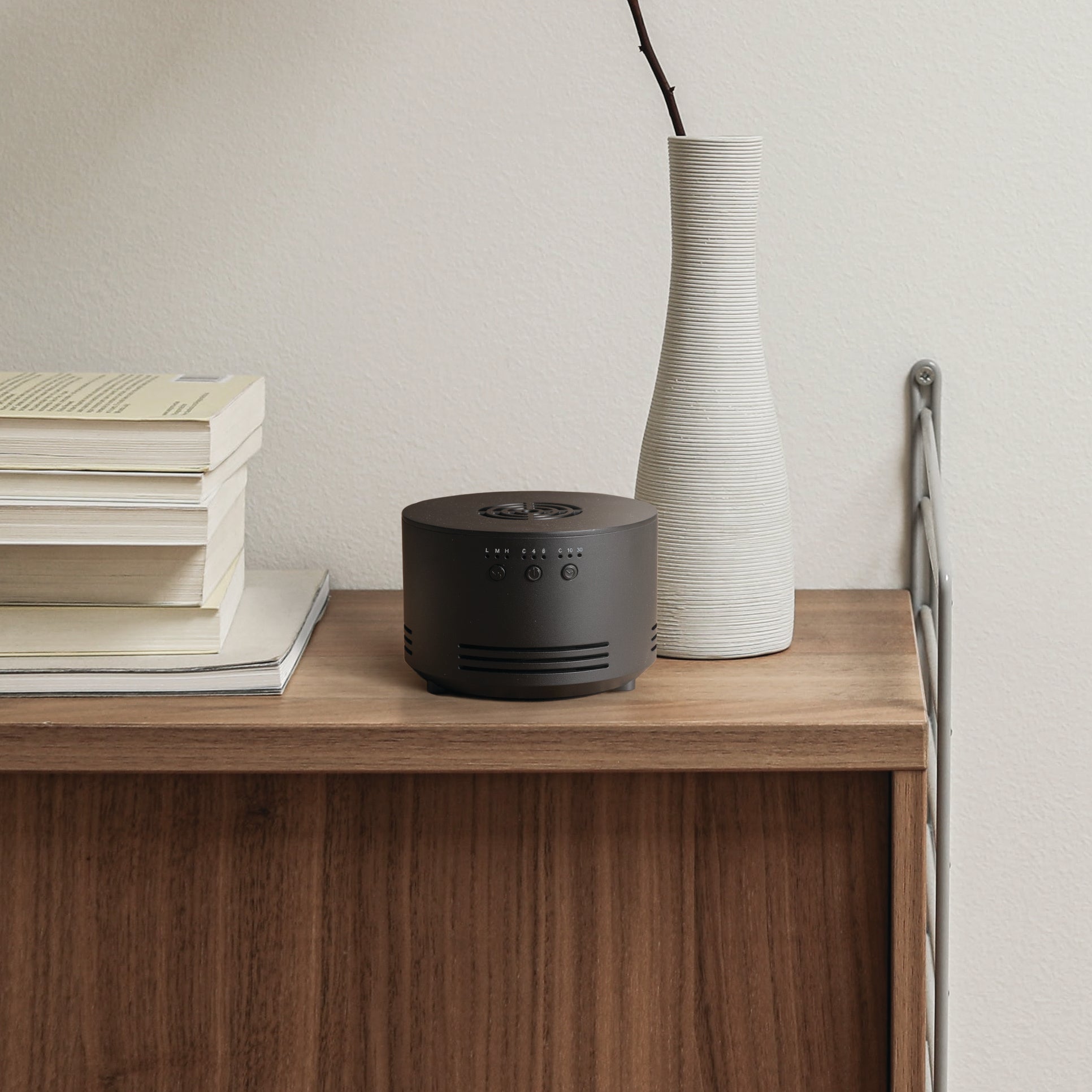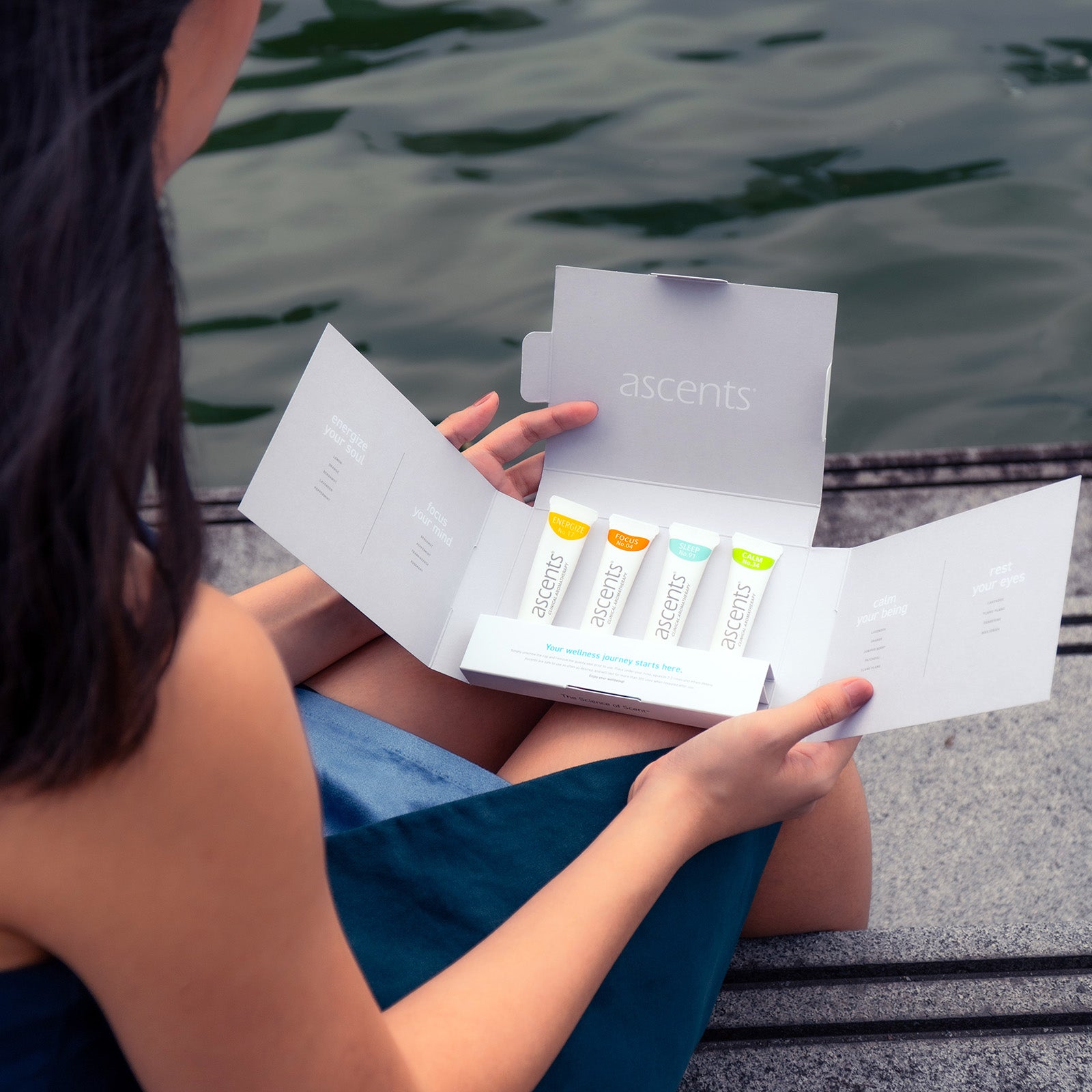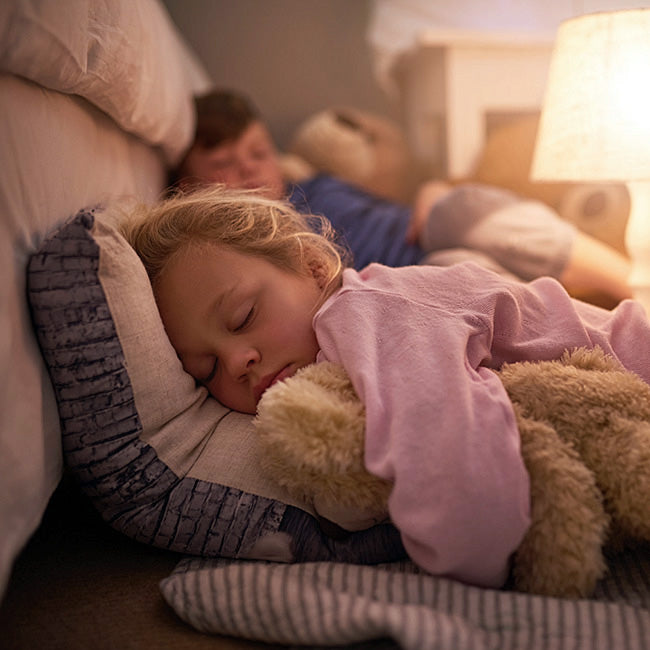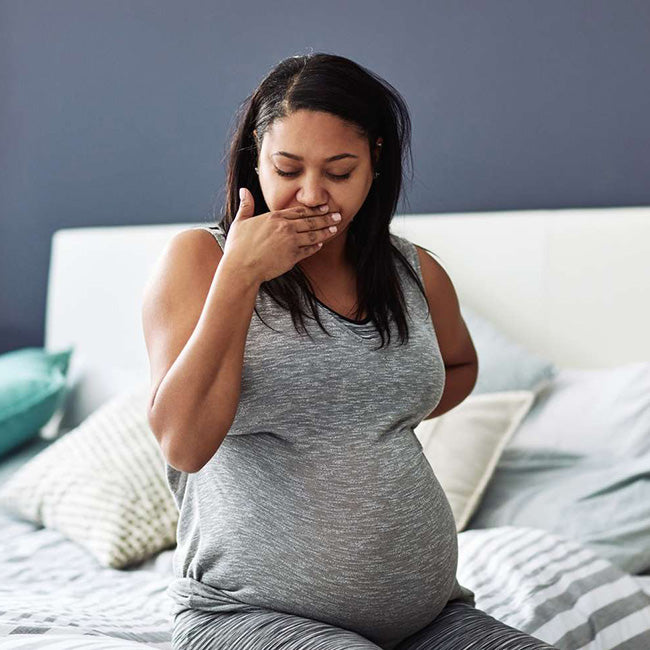Ascents® Sleep No. 91: Research Abstracts for Component Oils
An olfactory stimulus modifies nighttime sleep in young men and women.
Goel N(1), Kim H, Lao RP.
Author information:
(1)Department of Psychology, Wesleyan University, Middletown, Connecticut 06459, USA.
ngoel@wesleyan.edu
Aromatherapy is an anecdotal method for modifying sleep and mood. However, whether olfactory exposure to essential oils affects night-time objective sleep remains untested. Previous studies also demonstrate superior olfactory abilities in women. Therefore, this study investigated the effects of an olfactory stimulus on subsequent sleep and assessed gender differences in such effects. Thirty-one young healthy sleepers (16 men and 15 women, aged 18 to 30 yr, mean+/-SD, 20.5+/-2.4 yr) completed 3 consecutive overnight sessions in a sleep laboratory: one adaptation, one stimulus, and one control night (the latter 2 nights in counterbalanced order). Subjects received an intermittent presentation (first 2 min of each 10 min interval) of an olfactory (lavender oil) or a control (distilled water) stimulus between 23:10 and 23:40 h. Standard polysomnographic sleep and self-rated sleepiness and mood data were collected. Lavender increased the percentage of deep or slow-wave sleep (SWS) in men and women. All subjects reported higher vigor the morning after lavender exposure, corroborating the restorative SWS increase. Lavender also increased stage 2 (light) sleep, and decreased rapid-eye movement (REM) sleep and the amount of time to reach wake after first falling asleep (wake after sleep onset latency) in women, with opposite effects in men. Thus, lavender serves as a mild sedative and has practical applications as a novel, nonphotic method for promoting deep sleep in young men and women and for producing gender-dependent sleep effects.
PMID: 16298774 [PubMed - indexed for MEDLINE]
Effects of lavender aromatherapy on insomnia and depression in women college students.
Article in Korean
Lee IS(1), Lee GJ.
Author information:
(1)Department of Nursing, Keukdong College, Chungcheongbuk-Do, Korea.
ilee001@kdc.ac.kr
PURPOSE: The purpose of this study was to explore the effects of the lavender fragrance on sleep and depression in women college students.
METHOD: Forty-two women college students who complained of insomnia were studied during a four-week protocol(control treatment week, 60% lavender fragrance treatment week, washout week, 100% lavender fragrance treatment week). All subjects were in the department of nursing in "K" college and the study was a single blind repeated measurements experiment. For the duration of the study, weekly evaluations of sleep, patterns of sleep disturbance, severity of insomnia scale, self satisfaction with sleep, and severity of depression were performed.
RESULT: Among sleep variables, length of time taken to fall asleep, severity of insomnia, and self satisfaction with sleep were improved for the 60%(p=.000, p=.000, p=.000) and 100%(p=.000, p=.000, p=.000) week while the severity of depression was improved only for the 100%(p=.002) week.
CONCLUSION: According to the study results, it can be concluded that the lavender fragrance had a beneficial effect on insomnia and depression in women college students. Repeated studies are needed to confirm effective proportions of lavender oil and carrier oil for insomnia and depression.
PMID: 16520572 [PubMed - indexed for MEDLINE]
A single-blinded, randomized pilot study evaluating the aroma of Lavandula augustifolia as a treatment for mild insomnia.
J Altern Complement Med. 2005 Aug;11(4):631-7.
Lewith GT(1), Godfrey AD, Prescott P.
Author information:
(1)University of Southampton, Southampton, United Kingdom. jbb2@soton.ac.uk
BACKGROUND: Insomnia is the most common of all sleep complaints and is under researched. The current treatments of choice are conventional hypnotics agents, but these have potential for serious adverse reactions. Uncontrolled and anecdotal evidence suggests that lavender oil is an effective treatment for insomnia, but this has not been formally investigated.
OBJECTIVES: The aims of this study were to evaluate the proposed trial methodology and the efficacy of Lavandula augustifolia (lavender) on insomnia.
INTERVENTIONS: INTERVENTIONS consisted of Lavandula augustifolia (treatment) and sweet almond oil as placebo/control. The aroma was supplied via an Aromastream device (Tisserand Aromatherapy, Sussex, UK).
DESIGN: This was a pilot study with randomized, single-blind, cross-over design (baseline, two treatment periods, and a washout period, each of 1 week duration).
SUBJECTS AND SETTING: Volunteers with defined insomnia treated on a domiciliary basis participated in the study.
OUTCOME MEASURES: Outcomes were assessed with the following: Pittsburgh Sleep Quality Index (PSQI) indicating insomnia (score > 5 at entry); Borkovec and Nau (B&N) Questionnaire evaluating treatment credibility; and Holistic Complementary and Alternative Medicine Questionnaire (HCAMQ) assessing attitudes to CAM and health beliefs.
RESULTS: Ten (10) volunteers (5 male and 5 female) were entered and completed the 4 week study. Lavender created an improvement of -2.5 points in PSQI (p = 0.07, 95% CI - 4.95 to - 0.4). Each intervention was equally credible and belief in CAM did not predict outcome. Women and younger volunteers with a milder insomnia improved more than others. No period or carry-over effect was observed.
CONCLUSION: The methodology for this pilot study appeared to be appropriate. Outcomes favor lavender, and a larger trial is required to draw definitive conclusions.
PMID: 16131287 [PubMed - indexed for MEDLINE]
Aromatherapy: The Effect of Lavender on Anxiety and Sleep Quality in Patients Treated With Chemotherapy
Clin J Oncol Nurs. 2018 Apr 1;22(2):203-210. doi: 10.1188/18.CJON.203-210.; Ozkaraman A1, Dügüm Ö2, Özen Yılmaz H1, Usta Yesilbalkan Ö3.
Conclusion: State anxiety before and after chemotherapy did not vary among groups. The authors compared trait anxiety values before and after chemotherapy and found a significant difference in the lavender group. In addition, a significant change in PSQI measurements before and after chemotherapy was observed.
The Effect of Aromatherapy on Sleep Quality of Elderly People Residing in a Nursing Home.
Holist Nurs Pract. 2018 Jan/Feb;32(1):8-16. doi: 10.1097/HNP.0000000000000244.; Faydalı S1, Çetinkaya F.
CONCLUSIONS: The results indicated an improvement of sleep quality of nursing home residents after the application of aromatherapy with lavender oil.
Effect of aromatherapy on the quality of sleep in ischemic heart disease patients hospitalized in intensive care units of heart hospitals of the Isfahan University of Medical Sciences.
Iran J Nurs Midwifery Res. 2010 Fall;15(4):234-9.
Moeini M(1), Khadibi M, Bekhradi R, Mahmoudian SA, Nazari F.
Author information:
(1)Faculty Member, Department of Surgical Nursing Midwifery, Isfahan University of Medical Sciences, Isfahan, Iran.
BACKGROUND: Sleep disorder is one of the common problems patients face in ICU and CCU and it is usually treated by sleeping pills. Nowadays, the complementary medicine is highly considered because of its effectiveness and safety. Aromatherapy is one of the holistic nursing cares which sees human beings as a biological, mental and social unit while the psychological dimension has the central role. Each of these dimensions is dependent on each other and is affected by each other. Therefore, it is fundamental for nurses to provide aromatherapy in their clinical performance. Aromatherapy helps treatment of diseases by using vegetable oils and it seems to be effective in reducing sleeplessness.
METHODS: This was a clinical trial on 64 patients (male and female) hospitalized in CCU in Al-zahra and Chamran hospitals. The intervention included 3 nights, each time 9 hours aromatherapy with lavender oil for the experiment group, while the controls received no intervention. Both groups filled out the SMHSQ that includes 11 items to assess sleep quality before and after intervention.
RESULTS: Data analysis showed that the mean scores of sleep quality in the two groups of experiment and control were significantly different after the aromatherapy with lavender oil (p < 0.001).
CONCLUSIONS: Quality of sleep in ischemic heart disease patients was significantly improved after aromatherapy with lavender oil. Therefore, using aromatherapy can improve the quality of their sleep and health.
PMCID: PMC3203283
PMID: 22049287 [PubMed]
Sedative and Hypnotic Activities of the Methanolic and Aqueous Extracts of Lavandula officinalis from Morocco
Advances in Pharmacological Sciences
Volume 2012 (2012), Article ID 270824, 5 pages
http://dx.doi.org/10.1155/2012/270824
Rachad Alnamer,1 Katim Alaoui,2 El Houcine Bouidida,3 Abdelaziz Benjouad,1and Yahia Cherrah2
1Laboratory of Genetic Immunology and Biochemistry, Department of Biology, Faculty of Science, Mohammed V Agdal University, BP 6203, Rabat Instituts, Agdal, Rabat, Morocco
2Laboratory of Pharmacology and Toxicology, Department of Drugs Sciences, Faculty of Medicine and Pharmacy, Mohammed V Souissi University, ERTP, BP 6203, Rabat Instituts, Agdal, Rabat, Morocco
3National Laboratory of Drugs Controlled, BP 6203, Rabat Instituts, Agdal, Rabat, Morocco
Received 4 August 2011; Revised 16 September 2011; Accepted 1 October 2011 Academic Editor: Elaine Cristina Gavioli
ABSTRACT: We evaluate the sedative and hypnotic activities of the methanol and aqueous extract of Lavandula officinalis L. on central nervous system (CNS). In this study, the effect of the methanolic and aqueous extracts of this plant was investigated in a battery of behavioural models in mice. Stems and flowers of Lavandula officinalis L. have several therapeutic applications in folk medicine in curing or managing a wide range of diseases, including insomnia. The methanolic extract produced significant sedative effect at the doses of 200, 400, and 600 mg/kg (by oral route), compared to reference substance diazepam (DZP), and an hypnotic effect at the doses of 800 and 1000 mg/kg while the treatment of mice with the aqueous extract at the doses of 200 and 400 mg/kg via oral pathway significantly reduced in both the reestablishment time and number of head dips during the traction and hole-board tests.
In conclusion, these results suggest that the methanolic and aqueous extracts of Lavandula officinalis possess potent sedative and hypnotic activities, which supported its therapeutic use for insomnia.
Nurses experience of aromatherapy use with dementia patients experiencing disturbed sleep patterns. An action research project.
Complement Ther Clin Pract. 2013 Nov;19(4):209-13. doi: 10.1016/j.ctcp.2013.01.003. Epub 2013 Aug 17.
Johannessen B(1).
Author information:
(1)Institute of Health and Nursing Science, Faculty of Health and Sports, University of Agder, Norway. Electronic address: Berit.Johannessen@uia.no.
The purpose of this study was to gain an insight into nurses' experiences of incorporating aromatherapy into the care of residents suffering from dementia, anxiety and disturbed sleep patterns. Twenty-four residents and twelve nurses from four nursing homes participated in an action research study. The use of lavender augustofolia essential oil diffused nightly was perceived as an effective care modality reducing insomnia and anxiety in this patient cohort. Nurses experienced some negative attitudes among colleagues because they considered aromatherapy as not evidence based. Nurses require greater access to evidence based use of Aromatherapy. Further research is needed to study how smell can enhance dementia care.
Copyright © 2013 Elsevier Ltd. All rights reserved.
PMID: 24199975 [PubMed - indexed for MEDLINE]
Essential oil inhalation on blood pressure and salivary cortisol levels in prehypertensive and hypertensive subjects.
Evid Based Complement Alternat Med. 2012;2012:984203. doi: 10.1155/2012/984203.
Epub 2012 Nov 19.
Kim IH(1), Kim C, Seong K, Hur MH, Lim HM, Lee MS.
Author information:
(1)College of Nursing, Eulji University, Daejeon, Republic of Korea.
The purpose of this study was to identify the effects of essential oil inhalation on the 24 hour ambulatory blood pressure (BP) and salivary cortisol level in 83 prehypertensive and hypertensive subjects. The experimental group (n = 28) was asked to inhale an essential oil blended with lavender, ylang-ylang, marjoram, and neroli (20 : 15 : 10 : 2), whereas the placebo group (n = 27) was asked to inhale an artificial fragrance for 24 hours and the control group received no treatment (n = 28). The SBP (P < .001) and DBP (P = .009) measured at home in the experimental group were significantly decreased compared with the placebo group and the control group after treatment. The daytime SBP during the 24-hour ambulatory BP measurement of the experimental group presented with significant decreases in comparison with the measurements of the placebo group and the control group (P < .001). There was no statistically significant difference in the nighttime SBPs. The daytime DBPs during the 24-hour ambulatory BP measurements of the experimental group presented with significant decreases in comparison with the measurements of the placebo group and the control group (P = .002). There was no significant difference in the night time DBPs. The experimental group showed significant decreases in the concentration of salivary cortisol in comparison with the concentrations of the placebo group and the control group (P = .012).
In conclusion, the inhalation of an essential oil had immediate and continuous effects on the home SBP, daytime BP, and the stress reduction. Essential oils may have relaxation effects for controlling hypertension.
PMCID: PMC3521421
PMID: 23259002 [PubMed]
Effects of aromatherapy on sleep quality and anxiety of patients.
Nurs Crit Care. 2015 Jul 27. doi: 10.1111/nicc.12198. [Epub ahead of print]
Karadag E(1), Samancioglu S(2), Ozden D(3), Bakir E(4).
Author information:
(1)Faculty of Nursing, Dokuz Eylül University, Turkey. (2)Health Science Faculty, Gaziantep University, Gaziantep, Turkey. (3)Faculty of Nursing, Dokuz Eylül University, Izmir, Turkey. (4)Gaziantep University Medical Hospital, Gaziantep, Turkey.
BACKGROUND: In intensive care units (ICUs), patients cannot sleep well. Aromatherapy is used for depression, anxiety, relaxation and disorders related with sleep and stress.
AIM: This study aimed to investigate the effect of lavender essential oil on the sleep quality and anxiety level of patients in coronary ICU.
PARTICIPANTS: A total of 60 patients in coronary ICU participated in this study.
DESIGN: A randomized controlled study was conducted with 60 patients in a province located in the southeast of Turkey.
METHODS: After informing the patients in both groups about the study, they were administered a questionnaire, Pittsburgh Sleep Quality Index (PSQI) and the Beck Anxiety Inventory (BAI) scale. The patients in the intervention group were given 2% lavender essential oil via inhalation for 15 days after which they were administered the same scales again to evaluate the sleep quality and anxiety. As for the control group, they were administered the same scales again after 15 days without the inhalation of lavender essential oil.
RESULTS: Comparison of the PSQI and BAI scores of the patients in the control and intervention groups before and after the intervention showed statistically significant differences in the change in favour of the intervention group (p <0·05).
CONCLUSION: Lavender essential oil increased quality of sleep and reduced level of anxiety in patients with coronary artery disease.
© 2015 British Association of Critical Care Nurses.
PMID: 26211735 [PubMed - as supplied by publisher]





